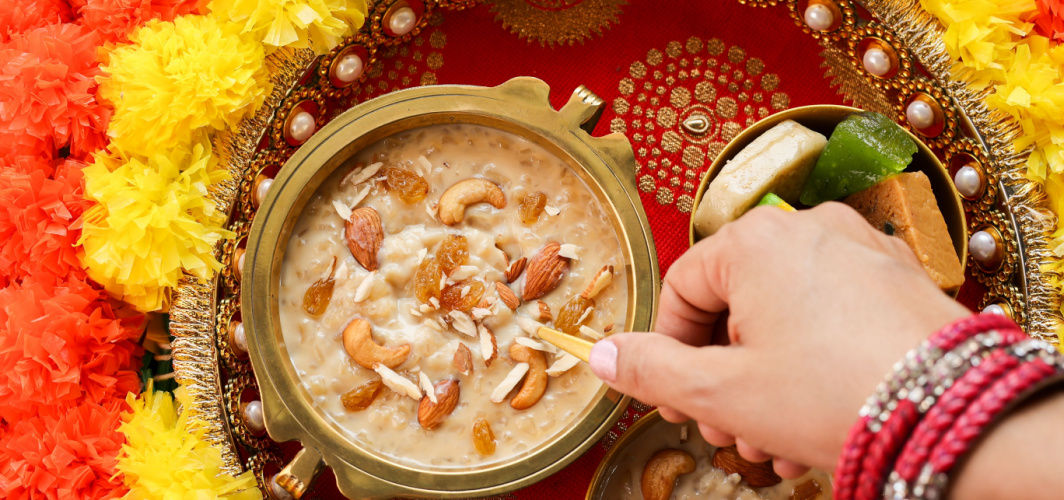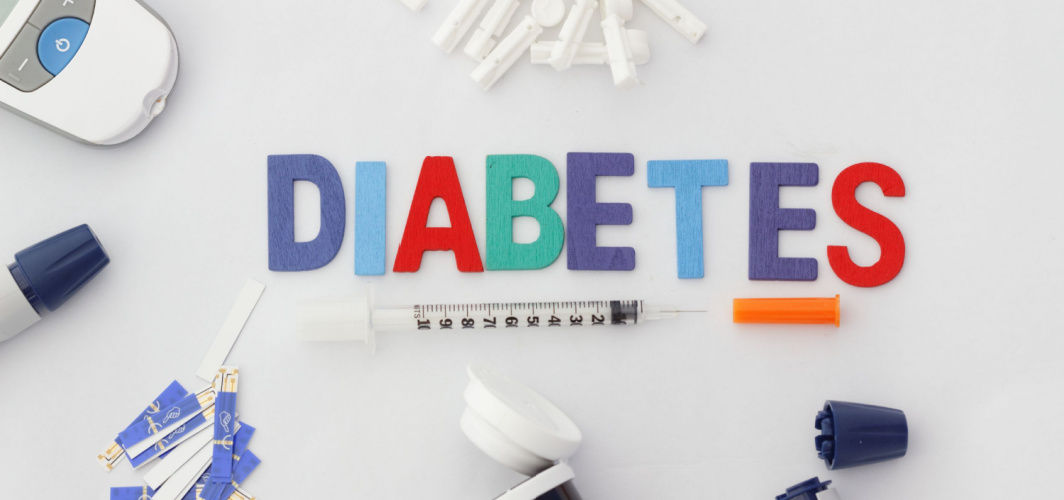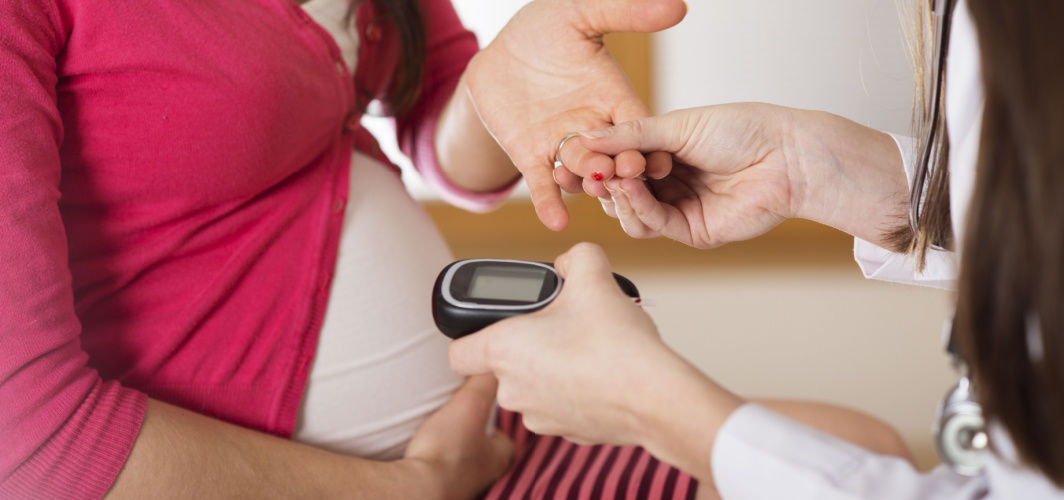Diabetes Management
5 Healthy Snacks for Diabetics During Navratri
3 min read
By Apollo 24|7, Published on - 16 March 2022, Updated on - 16 September 2025
Share this article
0
3 likes

The festive season has begun. While many of us are looking forward to gorging on our favourite snacks and beverages, people with diabetes are often deprived of relishing their cherished delicacies. However, doctors believe that diabetics can also enjoy their favourite snacks albeit with a few healthy modifications to the recipes. The article below lists 5 Navratri snacks and beverages for diabetics.
1. Baked Gujiya
Although gujiya is synonymous with the festival of Holi in India, it is also enjoyed during Navratri. The traditional sweet is a deep-fried dumpling made with suji (semolina) and maida (all-purpose flour) and stuffed with sweetened khoya (sweetened milk solids) and grated dry fruits. Gujiya is high on saturated fats and sugar, therefore is not considered an ideal sweet for diabetics. However, one can bake the gujiyas instead of deep-frying to make them healthier. Baking significantly reduces the number of calories in gujiyas. Maida can also be replaced with whole wheat, while khoya should be substituted with grated coconut and jaggery. The alternative preparation method will help retain the original shape of the sweet while making it a healthier option for people with diabetes.
2. Healthy Pakoras
Pakoras are widely served and consumed during Navratri celebrations. The spicy fritters are prepared by coating potatoes, onions, and green chillies in a besan (gram flour) batter before being deep-fried. However, these lip-smacking fritters can increase blood sugars as they are high on calories and refined carbohydrates. To make them more diabetic friendly, you can replace potatoes with other vegetables such as spinach, cauliflower, or eggplant. You can use olive oil to fry and avoid reusing the same oil for multiple batches of pakoras.
3. Low-Calorie Thandai
This chilled beverage usually contains a lot of sugar and fat. To make it diabetic-friendly, you can replace sugar with a healthier substitute like honey, powdered jaggery, or low-calorie sweeteners. You can also use soya or skimmed milk instead of full-fat milk. Adding healthy fats such as grated almonds, walnuts, and pistachios can help make the drink more nutritious.
Recommended reading: Can people with diabetes consume low-calorie sweeteners?
4. Khandvi
Khandvi is a popular Gujarati snack, widely consumed all across India. It is made using healthy ingredients such as besan (gram chickpea flour), dahi (yoghurt), til (sesame seeds) and mustard seeds. The preparation method of khandvi involves steaming rather than deep-frying, therefore, does not require a lot of cooking oil. The delicious snack is gluten-free and high in protein. It also contains other vital nutrients like fibre, manganese, zinc, iron, and calcium.
5. Kheer
Kheer, also known as rice pudding, is one of the staple sweet dishes consumed during Navratri. It is traditionally made using white rice, full-fat milk, sugar, and dry fruits. However, people with diabetes can still enjoy kheer by replacing white rice with a healthier alternative like brown rice. You should also swap sugar with jaggery or low-calorie sweeteners to make it even more savoury. Don’t forget to add loads of dry fruits to make your favourite sweet dish a lot more crunchy and healthy.
Takeaway
For many of us, Navratri is also a reason to binge on our favourite foods and beverages. However, people with diabetes often have to curb their cravings on this day. Health experts believe that diabetes can also enjoy their favourite foods by swapping the usual ingredients with healthier alternatives. While the article above mentions some of the healthy recipes for Navratri, you can also consult a qualified nutritionist to know more about what you can do to manage your blood glucose levels while having your favourite foods.
Want to consult a nutritionist?
Diabetes Management
Consult Top Diabetologists
View AllLeave Comment
Recommended for you

Diabetes Management
Which Age Group is the Most Susceptible to Diabetes?
The susceptibility to diabetes varies with age. Type 1 diabetes is often diagnosed in childhood or adolescence due to an autoimmune response. In contrast, Type 2 diabetes is strongly linked to middle and older age, with risks rising significantly after the age of 45. Gestational diabetes can develop in anyone during pregnancy, but the risk increases as one ages. Factors like physical activity, metabolic changes, body composition, and genetics influence age-related susceptibility. Early detection and management are crucial, involving regular check-ups, blood sugar monitoring, a balanced diet, and tailored approaches for older adults with coexisting health conditions. Awareness and proactive health measures are vital for effective diabetes management across age groups.

Diabetes Management
Exercising Later In The Day Can Help Control Blood Sugar Better. Here's How!
Recent studies suggest that exercising later in the day may reduce your risk of insulin resistance (high blood sugar). Let us understand all about it!

Diabetes Management
How To Prevent Diabetes During Pregancy?
Learn about effective strategies and lifestyle factors to prevent diabetes during pregnancy. Discover the latest guidelines, new technologies and expert advice on managing gestational diabetes.
Subscribe
Sign up for our free Health Library Daily Newsletter
Get doctor-approved health tips, news, and more.
Visual Stories

8 Fruits That are Incredibly Healthy for Diabetes
Tap to continue exploring
Recommended for you

Diabetes Management
Which Age Group is the Most Susceptible to Diabetes?
The susceptibility to diabetes varies with age. Type 1 diabetes is often diagnosed in childhood or adolescence due to an autoimmune response. In contrast, Type 2 diabetes is strongly linked to middle and older age, with risks rising significantly after the age of 45. Gestational diabetes can develop in anyone during pregnancy, but the risk increases as one ages. Factors like physical activity, metabolic changes, body composition, and genetics influence age-related susceptibility. Early detection and management are crucial, involving regular check-ups, blood sugar monitoring, a balanced diet, and tailored approaches for older adults with coexisting health conditions. Awareness and proactive health measures are vital for effective diabetes management across age groups.

Diabetes Management
Exercising Later In The Day Can Help Control Blood Sugar Better. Here's How!
Recent studies suggest that exercising later in the day may reduce your risk of insulin resistance (high blood sugar). Let us understand all about it!

Diabetes Management
How To Prevent Diabetes During Pregancy?
Learn about effective strategies and lifestyle factors to prevent diabetes during pregnancy. Discover the latest guidelines, new technologies and expert advice on managing gestational diabetes.